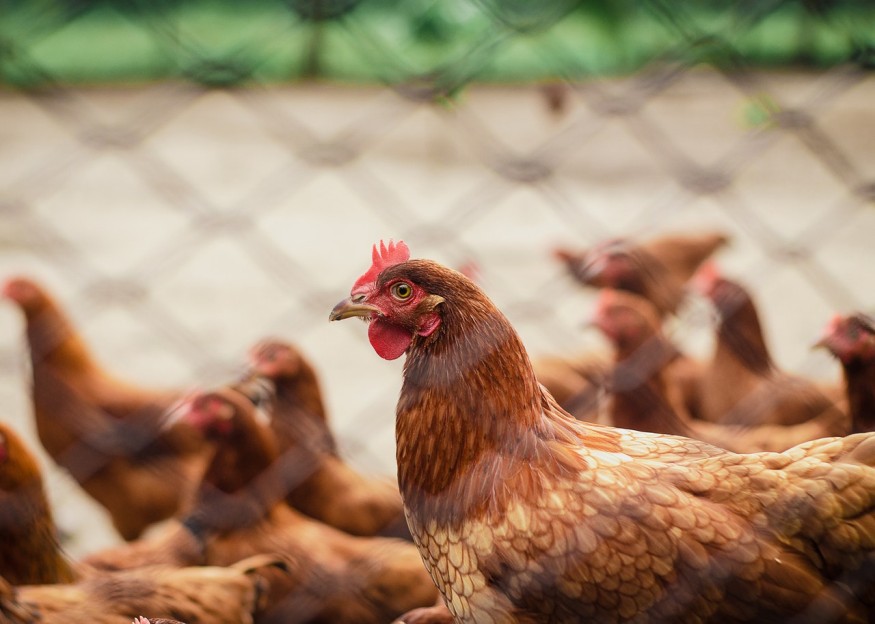"An urgent caution to avoid factory farming," according to the bird flu. According to experts, more intensive farming practices increase the lethal disease spillovers between cattle and wildlife.
![[BREAKING] Russia's First Human 'Bird Flu' Case; H5N8 Can Cause Death, Experts Predict](https://d.natureworldnews.com/en/full/52845/breaking-russias-first-human-bird-flu-case-h5n8-can-cause-death-experts-predict.jpg?w=875&f=305f587ef719b19a57fa1480deb28a88)
Giving Warning
Scientists studying wildlife health have cautioned that governments must take immediate action to alter the way animals are raised if they want to prevent catastrophic decreases in the population of birds and other species.
It has been determined that a commercial goose farm in southern China, where a relatively mild bird disease mutated into a killer in 1996, is the source of the unprecedented seabird die-off caused by highly pathogenic avian flu (HPAI), which is now being seen in breeding colonies throughout Europe, North America, and Africa.
Since 2007, when it began to affect wild bird populations, HPAI has expanded worldwide, killing millions of birds and showing no signs of slowing down.
Intensive Farming

As intensive farming has expanded to meet the demands of raising more affluent human populations for inexpensive meat, there has been an increase in disease spillovers between cattle and wildlife.
In the past 50 years, the number of pigs has practically doubled, from 547.2 to 952.6 million, the number of chickens has increased six-fold, from 5.7 to almost 36 billion, and the number of cattle has increased from 1.1 to 1.5 billion.
But as intensive livestock farming has become the norm, the likelihood of spillovers and the emergence of novel infections from bigger herds and flocks of commercial animals has also increased.
The lead author of the editorial published this week in the journal Science, Thijs Kuiken, is a professor in the department of viroscience at Erasmus University Medical Centre, Rotterdam. "These large livestock populations, which are connected through trade, form reservoirs where infectious diseases can evolve and spill over into wildlife, occasionally with devastating consequences," wrote Kuiken.
According to Kuiken, the HPAI outbreak in seabirds is "a warning, with fatal repercussions if heeded."
Increased Transmission
According to co-author Ruth Cromie, a councilor for wildlife health for the Convention on the Conservation of Migratory Species, farm animals are "increasingly transmitting the disease to wildlife." She draws attention to how the commerce in pigs and pig meat products has spread African swine disease across Europe and Asia, affecting wild boar and endangering rare species of wild suids (pigs) in southeast Asia.
Mycoplasma gallisepticum germs from poultry spread to finches and other songbirds in North America was one of the authors' other stated spillovers.
According to the authors, governments are obligated to safeguard animals against illnesses brought on by human activity. They suggest lowering livestock herd sizes and densities on farms, minimizing livestock transit between farms, and limiting interactions between domesticated animals and associated wild species. Middle- and high-income nations argue humans should switch from animal- to plant-based proteins.
Better Farming Method
According to Sam Sheppard, professor of microbial genomics and evolution at Oxford University who was not involved in the editorial, only a shift away from intensive cattle farming.
"Viruses and bacteria inevitably spread into the environment and wild animal species due to the sheer magnitude of these host niches, which contain millions of individual animals. Serious repercussions may result from this, as in the case of avian flu.
But this is only a portion of the issue. The number of diseases increases, and their rate of evolution increases with the size of the herd (or other group of animals). Farms can use biosecurity to lessen spillover, yet disease evolution still occurs. He claimed that by changing the farming method, producers could slow the rate at which infections evolve.
For the latest similar news, don't forget to follow Nature World News!
© 2025 NatureWorldNews.com All rights reserved. Do not reproduce without permission.





